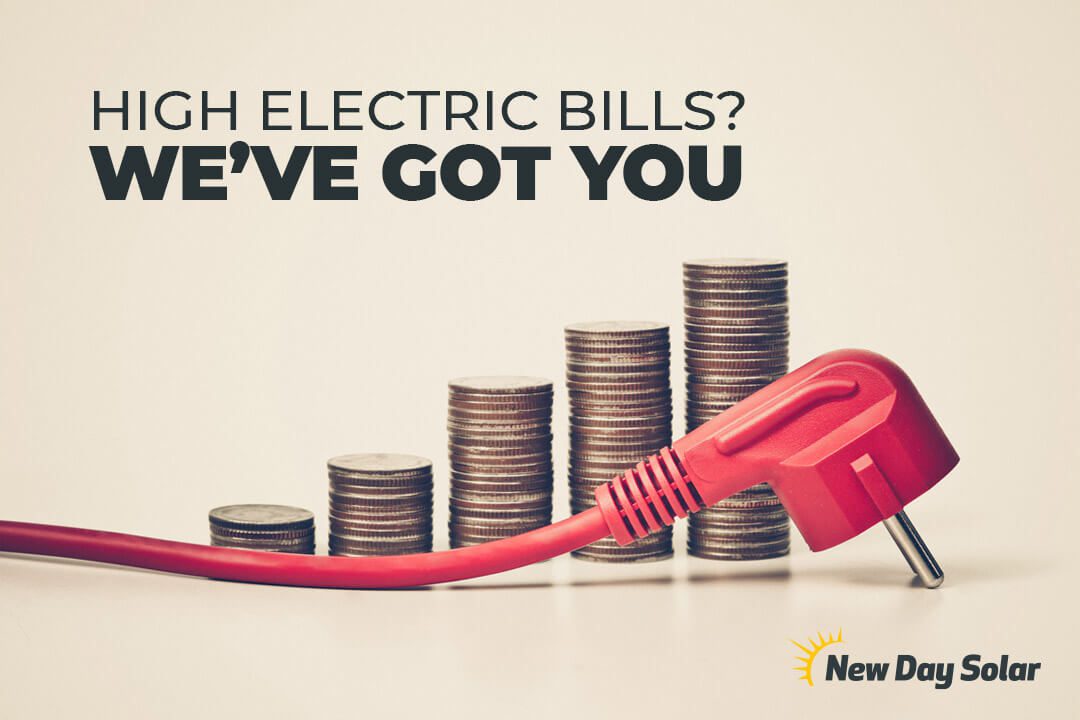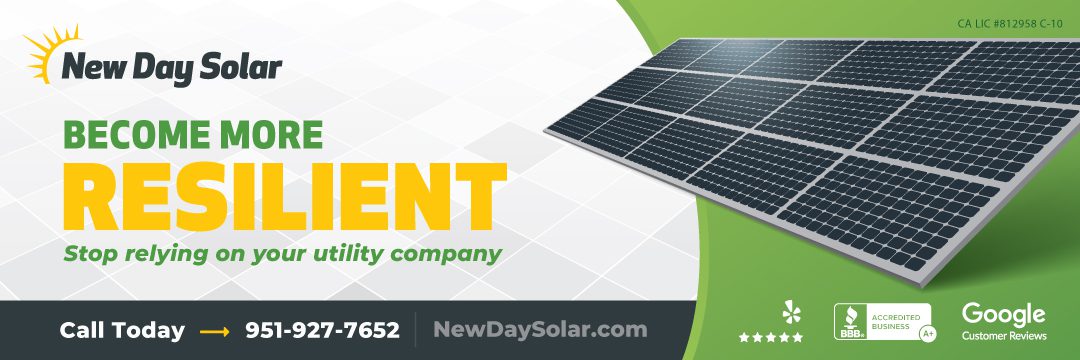Solar Panel Efficiency: Tips to Maximize Your Solar System Energy Efficiency

Solar panel efficiency is crucial for anyone looking to get the most out of their solar energy system.
Here are some tips for maximizing the efficiency of your solar panels to help save you money. Whether you’re new to solar power or looking to optimize your existing setup, this guide provides valuable insights to ensure your solar investment yields the best possible results.
Maximize Solar Panel Efficiency and Output – In This Article:
- What is Solar Panel Efficiency?
- Why Does Solar Panel Efficiency Matter?
- Our Top 4 Tips for Maximizing Solar Panel Output
- Monitoring Your Solar System to Optimize for Maximum Efficiency
- System Expansion: When Your Current Solar System Is Not Enough

What is Solar Panel Efficiency?
Solar panel efficiency refers to the ability of a solar panel to convert sunlight into usable electricity. The higher the efficiency, the more electricity generated by the solar panel from the same amount of sunlight. Efficiency is typically expressed as a percentage, indicating how much of the sunlight hitting the panel is converted into electrical energy.
The efficiency of solar panels can vary based on several factors, including the type of solar cell technology used, the quality of materials, and the design of the panels. Improving solar panel efficiency means more energy output and greater energy savings over time.
Why Does Solar Panel Efficiency Matter?
Solar panel efficiency is important because it directly impacts the amount of energy your solar system can produce. Higher efficiency means more power generation, which can reduce your energy bills and increase the return on your solar investment.
When you maximize the efficiency of your solar panels, you also reduce the number of panels needed to meet your energy needs. This can save space and reduce installation costs. Efficient solar panels are particularly valuable in areas with limited sunlight or where roof space is at a premium.
Our Top 4 Tips for Maximizing Solar Panel Output and Efficiency
Maximizing the efficiency of your solar panel system is essential to getting the most out of your investment. Whether you’re looking to reduce your electricity bills, minimize your carbon footprint, or simply make the most of the abundant sunshine in Southern California, there are several key factors that can significantly enhance the output of your solar panels.
Here are the top four strategies to optimize your solar panel performance.
1. Optimal Solar Panel Placement
Proper installation is crucial for maximizing a solar system’s output. This process begins with assessing the roof’s compatibility, including evaluating the roof material, tilt, and available space.
The placement of panels should be carefully chosen to ensure they capture maximum sunlight throughout the day, free from shadows cast by trees or nearby structures.
Panels should be securely mounted at the correct angle to optimize exposure to the sun’s rays, which enhances energy production and extends the lifespan of the solar system.
- Placement:
Panels should be positioned to capture the most sunlight throughout the day, avoiding shadows. - Shading:
Areas where trees or nearby structures might cast shadows on the panels should be avoided. - Roof Compatibility:
The material, tilt, and space on the roof are assessed to ensure suitability for solar panel installation. - Installation:
Secure mounting and correct angling of panels are essential for optimal performance and long-term durability.
2. High-Quality Equipment Selection
The choice of equipment plays a vital role in the efficiency of a solar system. High-quality solar panels, inverters, and mounting systems that offer superior efficiency and durability should be selected.
While premium equipment may have a higher upfront cost, it provides better long-term results, reducing maintenance needs and enhancing the return on investment.
- Solar Panels:
High-efficiency panels maximize energy production. - Inverters:
The right type—string, micro, or hybrid—should be chosen based on the system’s design. - Mounting Systems:
Durable mounting systems ensure that the panels remain securely in place, even in extreme weather conditions.
3. Regular Maintenance and Cleaning
Regular maintenance and cleaning are key to maintaining the efficiency of solar panels. Over time, dirt, debris, and grime can accumulate, reducing the amount of sunlight the panels can capture. Regular inspections and cleanings keep the system operating at peak performance. Maintenance services include checking for loose connections, wear and tear, and overall system health.
- Panel Cleaning:
Removing dirt and debris ensures maximum sunlight absorption. - System Inspections:
Regular checks help identify and resolve issues before they impact performance. - Component Health:
The inverter and other components should be assessed to ensure everything is functioning correctly.
4. Energy Storage Integration
Integrating energy storage solutions, such as solar batteries, can significantly enhance a solar system’s efficiency. By storing excess energy generated during the day, solar power can be used even at night or during cloudy periods.
This not only maximizes the use of solar energy but also reduces reliance on the grid, providing greater energy independence and resilience against power outages.
- Solar Batteries:
Store excess energy for use when the sun isn’t shining. - Energy Independence:
Reduce reliance on the grid by using stored solar energy. - Backup Power:
Protect the home from power outages with a reliable energy storage system.

Solar System Monitoring: Why It’s Essential and What It Offers
Why Should You Monitor Your Solar System?
Monitoring a solar system is essential for maximizing its efficiency, ensuring optimal performance, and protecting the investment in renewable energy. What if you see a decrease in your system output? Monitoring will help with that.
Platforms like Enphase, Franklin Whole Home, Tesla PowerWall, and NeoVolta allow homeowners to track energy production, consumption, and storage in real-time. Monitoring helps ensure that the solar system is performing as expected, potentially increasing its lifespan and enhancing overall energy savings.
By keeping a close eye on system metrics, homeowners can also make informed decisions on energy usage, contributing to a more sustainable lifestyle.
What Will the Monitor Tell You?
A monitoring platform provides detailed insights into various aspects of the solar system. It shows real-time data on energy production, letting homeowners see how much solar power their panels generate throughout the day.
It also tracks energy consumption, helping users understand when and how energy is being used in the household. In addition, these platforms often include storage monitoring, which shows how much energy is being stored in batteries like the Tesla PowerWall for later use.
This data can be critical for optimizing energy usage patterns and minimizing reliance on the grid.
Can It Identify Issues Early?
Yes, one of the most significant benefits of solar system monitoring is the ability to identify issues early. Monitoring platforms can detect performance drops, shading problems, inverter issues, and other potential faults in the system.
By receiving alerts or notifications when something goes wrong, homeowners can address problems before they escalate into more significant issues, such as reduced energy production or system failure.
Early detection not only protects the solar investment but also ensures consistent energy savings.
Beyond basic monitoring, these platforms often offer advanced features such as:
- Performance Analytics:
Detailed reports and analytics that help identify trends and optimize solar system performance. - Remote Access:
The ability to monitor and control the solar system remotely via mobile apps, providing convenience and peace of mind. - Energy Independence Tracking:
Insights into how much energy is being produced and consumed from renewable sources versus the grid, helping homeowners achieve greater energy independence. - Integration with Smart Home Systems:
Some platforms can integrate with smart home devices, allowing for automated energy management based on real-time data, further enhancing energy efficiency and savings.
By utilizing solar system monitoring platforms, homeowners can take a proactive approach to managing their energy, ensuring their solar system operates at its best and continues to deliver maximum benefits over time.

System Expansion: When Your Current Solar System Is Not Enough
When to Consider System Expansion
Sometimes, the initial solar power system installed may not fully meet the energy demands of a growing household or increasing energy usage. Expanding your solar system can be an effective way to enhance performance and efficiency. Key indicators that it might be time for an expansion include:
- Increased Energy Needs:
If your household’s energy consumption has increased due to new appliances, additional rooms, or higher usage patterns. - Current System Limitations:
If your existing solar system is not producing enough power to cover your electricity needs, leading to reliance on the grid. - Technological Advancements:
If newer, more efficient solar panels or components have become available, upgrading or expanding the system might improve overall performance. - Changes in Billing or Net Energy Metering: California solar laws and utility billing structures change often. This can sometimes be enough to warrant a system expansion.
Evaluating Your Current System
Before expanding your solar power system, it’s essential to assess the current setup:
- Roof Space:
Determine if there is sufficient space on your roof or property for additional solar panels. Consider any shading issues or structural limitations that might affect panel placement. - System Capacity:
Review the capacity of your current inverter and battery storage. Upgrading these components may be necessary to handle the additional energy production from expanded panels. - Permits and Regulations:
Check local regulations and zoning laws to ensure that any system expansion complies with permitting requirements and building codes.
Planning the Expansion
Once the assessment is complete, planning the expansion involves:
- Consulting with Experts:
Engage with a solar contractor to design a system that integrates seamlessly with the existing setup. They can provide insights into the best configuration and necessary upgrades. - Choosing the Right Equipment:
Select high-quality solar panels and other components that match the performance and efficiency of your existing system. New technology may offer better efficiency and durability. - Budget Considerations:
Calculate the cost of expansion, including installation, equipment, and any necessary upgrades to the existing system. Compare this with the potential savings and benefits of increased energy production.
Benefits of System Expansion
- Increased Energy Production: Expanding the solar system allows for greater energy production, potentially covering more of your household’s electricity needs and reducing dependence on the grid.
- Enhanced Efficiency: Newer, more efficient panels and components can improve the overall performance of the system, leading to better energy savings.
- Future-Proofing: An expanded system can accommodate future energy needs and technological advancements, providing long-term benefits and adaptability.

Looking to Improve Your Solar Power Efficiency? We Can Help!
At New Day Solar, we’re here to help you maximize the efficiency and performance of your solar power system. Whether you’re interested in system expansion, zero export configurations, or need guidance on the best solutions for your home, our team of experts is ready to assist.
Contact us today to schedule an inspection or consultation. Let us provide personalized recommendations and ensure your solar system is operating at its highest potential. Reach out now and take the next step toward a more efficient and effective solar power solution!
Filed Under:
have questions?
Schedule a consultation with Our Solar Experts
Find out more with an honest, no pressure consultation
with our team of solar experts.